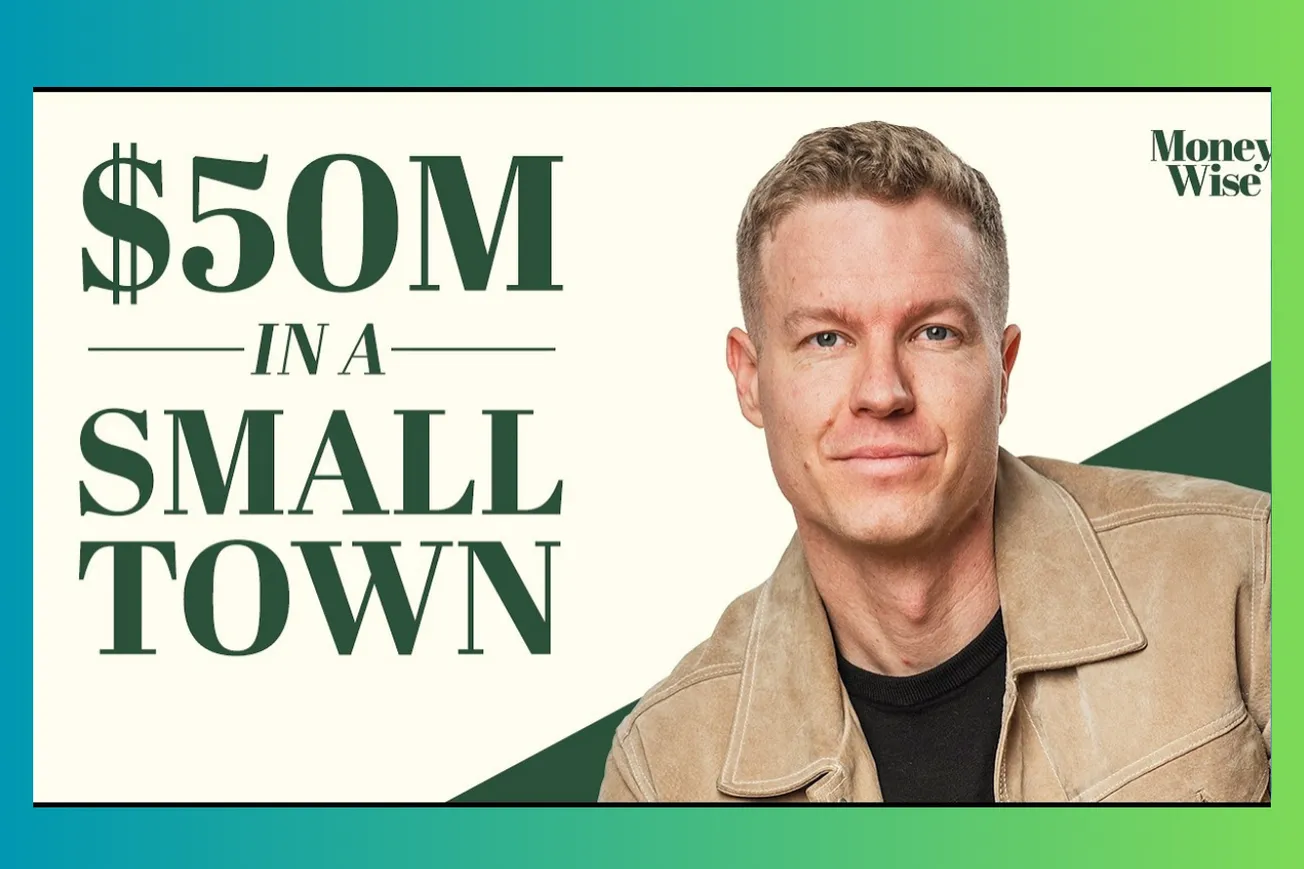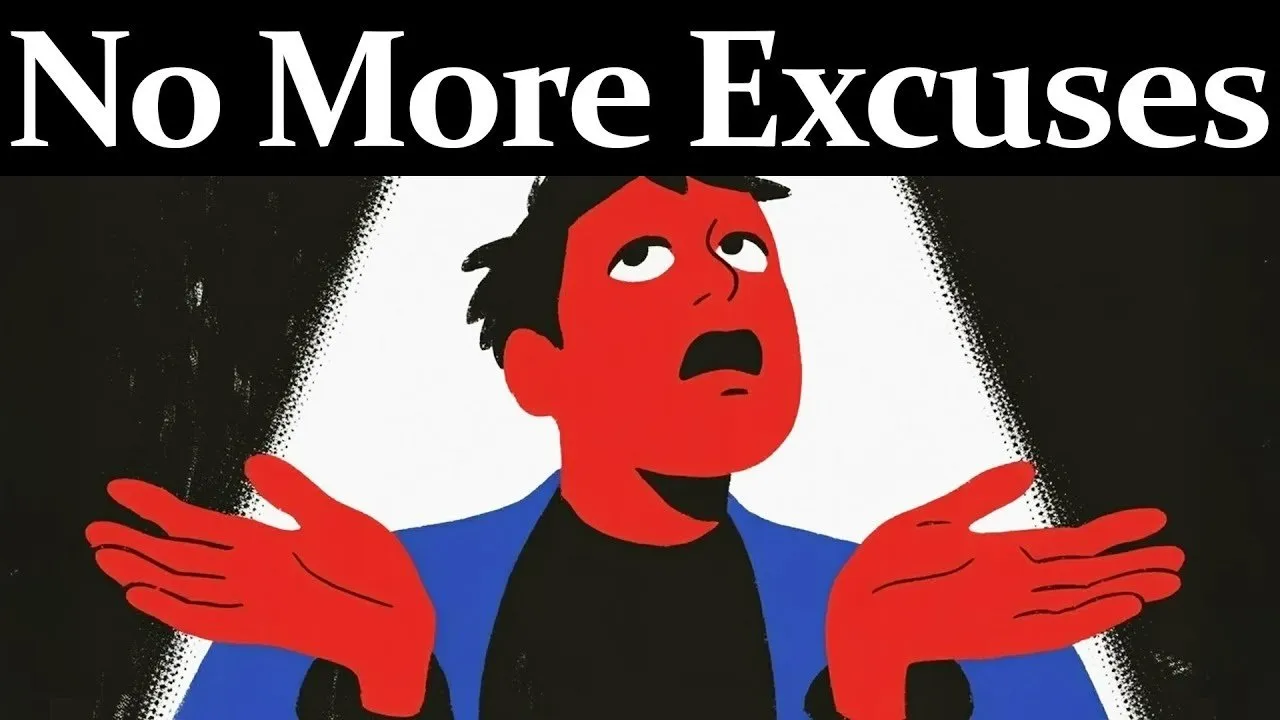Table of Contents
Don Berger sold Social Tables for $100M, kept $20M, and has spent it all maintaining his net worth. Here's his radical approach to wealth and belonging.
Discover how one entrepreneur embraces the "Die with Zero" philosophy while building community, overcoming addiction, and redefining post-exit success.
Key Takeaways
- Don sold Social Tables for $100M in 2018, netting $20M, but his net worth remains flat due to intentional high spending aligned with "Die with Zero" philosophy
- Monthly expenses reach $100K+ including $25K carrying costs for a $7.5M NYC apartment, demonstrating aggressive wealth deployment rather than accumulation
- His post-exit journey revealed a "belonging crisis" stemming from adoption, abandonment, and immigration trauma that drove both business success and personal struggles
- Recovery from love, sex, and porn addictions became a pathway to building authentic community connections and healthier relationship patterns
- The belonging tank concept identifies six paths to community connection, with professional belonging requiring personal belonging as a foundation
- His toxic company culture of mandatory happiness and social pressure reflected his own belonging insecurities projected onto employees
- Investment mistakes included $250K in failed startups, $80K in worthless NFTs, and various alternative investments that went illiquid or to zero
- Current income streams include dividends from $10M in public equities plus revenue from a commercial cleaning business and retreat center venture
- He advocates for post-exit entrepreneurs to park money in boring investments for 12 months while investing in self-discovery and personal brand development
Timeline Overview
- 01:08–03:47 — The $100M Exit Journey: Social Tables growth from $10K bootstrap to $20M ARR and acquisition, netting $20M personally
- 03:47–08:10 — Post-Exit Spending Spree: Tesla purchase and crash, $7.5M NYC apartment, investment mistakes, and current $100K monthly burn rate
- 08:10–18:01 — Financial Transparency: Portfolio breakdown with $10M liquid, $10M illiquid, die with zero philosophy implementation and fertility treatment costs
- 18:01–24:21 — Die With Zero Philosophy: Bill Perkins influence, grandfather's shroud wisdom, believing in ability to recreate wealth rather than hoard
- 24:21–26:02 — Belonging Crisis Origins: Adoption trauma, father abandonment, immigration language barriers creating lifelong search for community acceptance
- 26:02–30:01 — Company Culture Toxicity: Creating cult-like workplace belonging requirements that ostracized employees who didn't conform to mandatory social participation
- 30:01–36:58 — Addiction and Recovery: Love, sex, and porn addiction recovery leading to healthier relationships and community building through fellowship
- 36:58–40:51 — Men in Crisis: Entrepreneurship as confidence exercise, masculine identity challenges, need for vulnerable male community spaces
- 40:51–45:44 — Post-Exit Lessons: Avoiding alternative investments for first year, investing in self-discovery, writing book as marketing asset for next venture
Best quotes
"My grandfather always said in Judaism you're not buried in a coffin, you're buried in a shroud, and the shroud doesn't have pockets."
- Analysis: This quote reveals the generational wisdom that shaped Don's relationship with money. His grandfather's Holocaust-era perspective on mortality and material possessions provides philosophical foundation for the Die with Zero approach—understanding that wealth accumulation beyond utility is ultimately meaningless.
"When I started a company, I don't believe in becoming friends with your employees because we're not a family, but you oftentimes become friends with them, and your employees sort of become... it's like a general without an army, you just feel naked."
- Analysis: This reveals how entrepreneurs often unconsciously build companies to meet their personal belonging needs rather than optimizing for business success. Don's military metaphor shows how professional relationships became substitute family structures.
"I didn't realize people have to find belonging outside of work first before they can have belonging at work, and I flipped the script on that and that was a big mistake."
- Analysis: This insight exposes a fundamental flaw in startup culture—expecting work to fulfill all social needs. Don's recognition that he projected his own belonging deficits onto employees shows how founder psychology can create toxic workplace dynamics.
"I have gratitude for my addiction absolutely because it brought me to where I am today... but without my addiction I would not be where I am today."
- Analysis: This paradoxical relationship with destructive behaviors illustrates how entrepreneurs often struggle to separate success drivers from harmful patterns. Don's gratitude for addiction while working on recovery shows sophisticated understanding of how trauma can fuel achievement.
"I think men are in a crisis... to be masculine is sort of not a compliment right now, and that's not good."
- Analysis: Don identifies broader cultural challenges affecting entrepreneurial mental health. His observation about masculinity reflects how traditional male identity markers have shifted without clear replacements, creating psychological confusion for achievement-oriented men.
The Die with Zero Reality: When Philosophy Meets Practice
- Don's $100K+ monthly spending represents genuine implementation of Bill Perkins' philosophy rather than lip service—most wealthy individuals claim to embrace spending while actually accumulating
- Fertility treatment costs ($350K+ for one baby) demonstrate how life circumstances can justify massive expenses that traditional financial planning would discourage
- The $7.5M NYC apartment purchase with $25K monthly carrying costs shows commitment to lifestyle optimization over investment returns, prioritizing present enjoyment over future wealth
- His rejection of first-class travel despite high spending reveals selective application of Die with Zero principles based on personal value perception rather than status signaling
Don's approach challenges fundamental assumptions about wealth management by prioritizing current utility over future accumulation. His confidence in wealth recreation ability allows aggressive spending that would terrify entrepreneurs who view their exit as unrepeatable luck. The die with zero philosophy requires both financial resources and psychological security—the belief that you can generate wealth again if needed. This mindset shift from scarcity to abundance enables experiences and relationships that pure accumulation strategies cannot provide.
The Belonging Crisis: How Founder Psychology Creates Toxic Culture
- Don's adoption trauma, father abandonment, and immigration language barriers created "anxious belonger" personality seeking validation through professional achievement and employee loyalty
- His company culture demanded total social participation—mandatory happy hours, t-shirt wearing, and cultural conformity that ostracized employees who maintained work-life boundaries
- The "water boarding people in the Kool-Aid" approach reflected his own inability to find belonging outside work, expecting employees to fill his social needs rather than maintaining professional relationships
- Three marriages resulted from company relationships, showing how workplace became primary social environment rather than professional space
Don's story illustrates how unresolved personal trauma gets projected onto company culture. Founders with belonging deficits often unconsciously design organizations to meet their social needs rather than optimizing for business performance. The mandatory social participation created artificial community that served Don's psychological needs while potentially harming employees who preferred professional boundaries. This pattern explains why many startups develop cult-like cultures—they're unconsciously designed to fill founder emotional voids rather than create sustainable workplace environments.
Addiction as Misguided Belonging Strategy: The Recovery Revelation
- Love, sex, and porn addictions represented attempts to solve worthlessness feelings stemming from early abandonment and adoption trauma
- Recovery through fellowship provided authentic community experience that work relationships couldn't replicate, offering genuine belonging without performance requirements
- The "God complex" of trying to control everything reflects how addiction patterns transfer to business leadership, creating manipulative rather than collaborative management styles
- His wife's grace in forgiving past behavior enabled relationship healing that professional therapy alone might not have achieved
Don's addiction patterns reveal how early trauma can simultaneously drive business success and personal destruction. The same compulsive energy that builds companies can manifest as relationship addiction, workaholism, or substance abuse. Recovery offered alternative belonging sources that reduced pressure on professional relationships to meet all social needs. His gratitude for addiction's role in his success while actively working on recovery shows sophisticated understanding of how destructive patterns can fuel achievement while requiring conscious management.
The Male Entrepreneur Crisis: Identity Beyond Achievement
- Don identifies broader cultural challenges where traditional masculine identity markers (provider, protector, leader) have shifted without clear replacement frameworks
- Entrepreneurship becomes confidence exercise requiring vulnerability and community support that many men lack emotional vocabulary to seek
- The "strong silent type" balance between Gary Cooper stoicism and vulnerable community sharing reflects tension between traditional masculinity and modern emotional requirements
- His men's group leadership (27 members) demonstrates how successful entrepreneurs can create belonging infrastructure for others facing similar challenges
Don's perspective on male entrepreneur struggles addresses how achievement-oriented men navigate changing cultural expectations. Traditional masculinity emphasized individual strength and emotional restraint, but entrepreneurship requires vulnerability, collaboration, and emotional intelligence. The suicide rates and education gaps he mentions reflect broader male adaptation challenges to economic and social changes. His solution—creating safe spaces for masculine vulnerability—offers model for addressing entrepreneur mental health through community rather than individual therapy alone.
Post-Exit Financial Strategy: Patience and Self-Investment
- His biggest mistake was immediately investing in alternative deals without proper due diligence, losing money in startups, funds, and speculative investments like NFTs
- The recommended 12-month waiting period allows emotional adjustment and prevents impulsive financial decisions driven by sudden wealth psychology
- Investment in personal brand development (writing book, building platform) creates marketing assets for future ventures rather than pure consumption
- Maintaining 50% liquid portfolio enables continued high spending while preserving capital for opportunities and emergencies
Don's investment mistakes illustrate how sudden wealth creates decision-making challenges that gradual wealth accumulation doesn't trigger. The psychological shift from scarcity to abundance often leads to poor judgment about risk and opportunity. His advice to "park it and do nothing" reflects understanding that post-exit entrepreneurs need time to develop wealth management skills and emotional adjustment to new financial reality. The self-investment approach (book writing, platform building) creates compound returns through reputation and network effects that pure financial investments cannot replicate.
Common Questions
Q: How much did Don make from his $100M exit?
A: He netted approximately $20M after taxes and fees, though he left about $1.5M on the table by leaving a year early.
Q: Why hasn't his net worth grown in 7 years?
A: He spends over $100K monthly and made poor investment choices, intentionally following "Die with Zero" philosophy rather than accumulating wealth.
Q: What is his current monthly spending breakdown?
A: $40K discretionary household budget plus $25K+ carrying costs for NYC apartment, totaling over $100K monthly including one-off expenses.
Q: What addictions was he recovering from?
A: Love, sex, and porn addictions stemming from adoption trauma and abandonment issues from childhood.
Q: What's his advice for post-exit entrepreneurs?
A: Park money in boring investments for 12 months, avoid alternative investments initially, and invest in self-discovery and personal brand development.
Conclusion
Don Berger's story reveals how early trauma can simultaneously fuel entrepreneurial success and personal destruction, while offering a blueprint for recovery through authentic community building and intentional wealth deployment. His "Die with Zero" approach challenges conventional wealth management by prioritizing present utility over future accumulation.
Practical implications for entrepreneurs:
• Recognize that professional belonging requires personal belonging first rather than expecting work relationships to meet all social needs
• Implement waiting periods after major liquidity events to prevent emotional spending and investment decisions driven by sudden wealth psychology
• Address underlying trauma and addiction patterns that may drive both business success and personal destruction through professional help and community support
• Build belonging tanks with multiple sources including family, community groups, hobbies, and causes rather than relying solely on work for social connection
• Consider die with zero philosophy carefully but only after building confidence in wealth recreation abilities and maintaining adequate emergency reserves
• Invest in personal brand and self-discovery during post-exit transitions as marketing assets for future ventures rather than pure consumption
• Create or join vulnerable communities with other entrepreneurs facing similar psychological and financial challenges • Separate founder identity from company identity to prevent belonging crisis when exiting or selling businesses
• Acknowledge that addiction patterns often transfer from substances to work, relationships, or achievement without conscious intervention
• Balance masculine stoicism with emotional vulnerability through trusted communities that provide safe spaces for authentic sharing
The deeper lesson is that wealth without belonging creates emptiness, while community without authenticity creates performance pressure—true satisfaction requires both financial resources and genuine human connection built on shared vulnerability rather than shared success.





